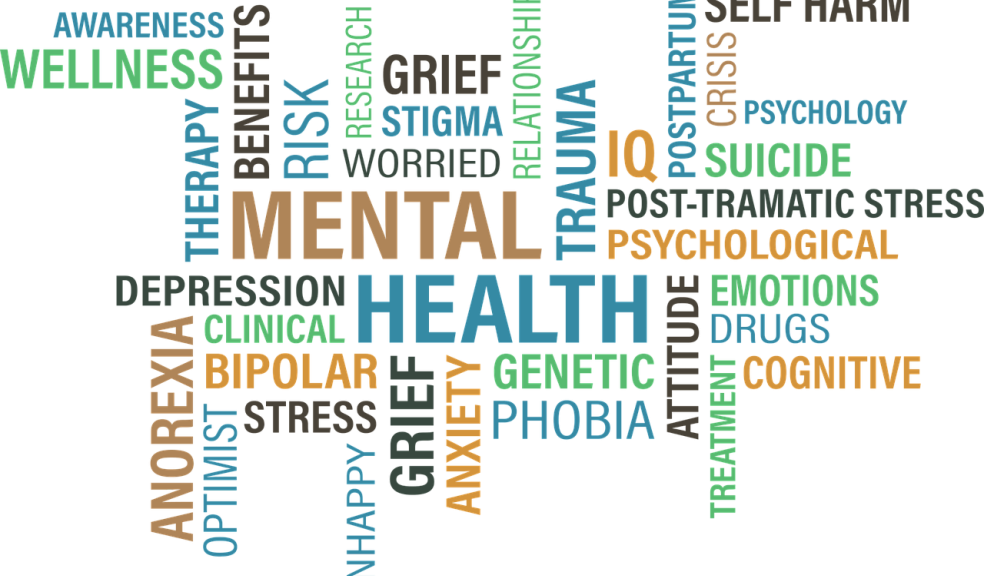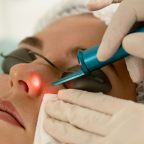
Psychological Disorders of the Mind that Affect the Masses
You must have watched movies where the eccentric criminal has an underlying mental disorder and commits mysterious crimes. They look so bizarre, but does mental illness affect the masses?
Psychological disorders, behavioral illnesses, and mental diseases change your way of thinking, emotions, and your brain’s chemical balance. A psychological disorder is an unusual change in a person's thinking, behavior, or emotions (or all three) which affects one's functions and habits.
The long list of psychological disorders includes behavior sickness, eating disorders, sleeping disorders, and neurodevelopmental disorders. They all have their own set of causes, symptoms, diagnoses, and treatment plans.
Mood changes, anxiety, and personality ailments are the most common and main characteristics of psychological disorders, while Depersonalization, Alien Hand Syndrome, and Lycanthropy are rare psychological disorders.
The 5 Most Frequent Mental Illnesses
The five most common types of psychological disorders around the globe are:
Anxiety Disorders
Anxiety, tension, or stress is a normal part of life. But if it interferes with your daily activities and you have repeated episodes, then it is regarded as an anxiety disorder. It is defined as persistent, intense, repeated episodes of anxiety, fear, desolateness, and nervousness. It could be specific phobias, social anxiety, separation anxiety, or generalized anxiety disorders.
These are the most common anxiety disorders that affect 30% of American adults:
- Panic disorder — sudden and repeated panic attacks
- Agoraphobia — fear of open places, public transport, and crowds
- Social Anxiety Disorder — inability to interact with other people, including your friends, family, and spouse
- Generalized Anxiety Disorder (GAD) — constant feeling of anxiety
- Specific Phobias — intense fear of something which is not hurting, such as water, height, plants, crowns, fire, crowd and the sky
- Separation Anxiety — fear of losing someone
- Obsessive-Compulsive Disorder (OCD) — obsessive thoughts and compulsive behavior
Symptoms
These are the most common symptoms of anxiety disorders:
- Feeling of panic
- Fear and uneasiness
- Inability to be still and calm
- Trouble sleeping
- Nightmares
- Uncontrollable, obsessive thoughts
- Muscle tension
- Cold or sweaty hands
- Heart palpitations
- Numbness or tingling in hands or feet
- Shortness of breath
- Repeated negative thoughts
- Flashbacks of traumatic experiences
- Ritualistic behaviors, for instance, washing hands repeatedly
Causes
- Long-term stress and anxiety can convert into anxiety disorders
- Sudden trauma and environmental factors contribute to anxiety disorders
- Failure in relationships, study, career, and social life can cause anxiety and depression
- A family history of depression and anxiety increases the risk of developing anxiety disorders
Treatment Options
Treatment options for anxiety disorders include medicinal support (antidepressants, anti-anxiety, and beta-blocker drugs), physiological therapies, counseling, behavioral therapy, and community support.
Eating Disorders
Eating disorders are one of the common psychological illnesses in women. People with eating disorders tend to have unusual eating habits, and could be due to fear of gaining weight, nutritional deficiencies, personality traits, or genetics.
It is medically defined as the range of mental illness which causes unusual and unhealthy eating habits and can lead to serious health risks.
This is a list of the most common eating disorders that affect 5% of the population:
- Anorexia nervosa (patients avoid eating due to fear of gaining weight even if they already have low body mass index)
- Bulimia nervosa (patients eat a lot but fear getting fat, so they purge to avoid an increase in calories)
- Binge-eating disorder (patients consume an unhealthy amount of food)
- Avoidant/restrictive food intake disorder (ARFID) (patients put many rules and restrictions in place about their food selection and eating)
- Rumination disorder (patients regurgitate undigested or partially digested food from stomach to mouth, rechews it, and swallows it again)
- Pica (craving for things that are not considered foods, such as mud, rubber, plastic, and chalk)
Symptoms
Symptoms of eating disorders may vary from person to person, depending greatly on your psychological condition and disorder. You should consult a healthcare and mental health expert for a personal examination.
These are some common behavioral symptoms of eating disorders:
- Unexplained weight loss or gain
- Difficulty eating in public places
- An obsession with healthy eating, weight, calories, fat, diet, and food
- Skipping meals
- Intense fear of gaining weight or becoming obese
- Food aversions
- Unusual cravings
- Taking pills to avoid eating and suppress appetite
- Binge-eating and purging
- Strange food rituals
- Dressing strangely to hide weight
These are the physical symptoms of eating disorders:
- Dry skin
- Unhealthy weight gain or loss
- Fainting
- Dizziness
- Sleeping difficulties
- Stomach cramps
- Constipation
- Poor immunity
- Menstrual irregularities
- Thinning hair
- Headaches
- Muscle weakness
- Fatigue
Causes
Eating disorders are generally caused by intense personal preferences, followed by a change in the brain chemicals that lead to eating disorders. In addition, genetics, culture, and societal pressure also contribute to eating disorders.
Treatment Options
EEating disorders can be treated with prescription antidepressants, antipsychotics, or mood stabilizers. Cognitive behavior therapy and nutritional counseling can also help patients recover from eating disorders. Furthermore, visiting a trusted local psychologist can help receive professional guidance as well as a safe space to explore the underlying causes of the eating disorders.
Post-traumatic Stress Disorder (PTSD)
PTSD is a common psychiatric disorder that typically occurs in people who have witnessed or gone through a traumatic event, such as physical abuse, sexual abuse, natural disasters, war/fight, or a terrorist attack. In this condition, the patient may experience frequent episodes of severe anxiety, nightmares, or sadness about the event.
Symptoms
These are the usual symptoms of PTSD:
- Intrusive memories (flashbacks of trauma, nightmares)
- Physical and emotional distress
- Avoidance (avoiding thinking, conversation, places, or anything related to the traumatic event)
- Negative changes in thinking and mood
- Changes in physical and emotional reactions
- Suicidal thoughts
- Frightening thoughts
- Bad dreams
- Anger outburst
- Lack of interest in enjoyable moments
Causes
Witnessing an accident, suddenly losing a loved one, natural disasters, financial loss, and abusive relationships are some of the triggering factors of PTSD. People who are assaulted sexually, physically, or behaviorally are also at risk of PTSD.
Treatment Options
Doctors usually prescribe antidepressant drugs to patients to manage PTSD symptoms. Prolonged exposure therapy, stress inoculation therapy, cognitive processing therapy, and group therapy are the most widely used treatment options for PTSD.
Personality Disorders
Every person has their own set of personality traits. But in some conditions, one's own unhealthy and rigid thinking, emotions, behavior, and function (which differs from what is expected by society and culture) is typically considered a personality disorder. A person with personality disorders has difficulty connecting and maintaining relationships with people.
Personality types usually stay the same for most of one’s life. The following are the most common types of personality disorders:
- Paranoid personality disorder (distrusted and suspicious thinking pattern)
- Schizoid personality disorder (avoidance of social activities)
- Avoidant personality disorder (restrictive and avoidant behavior type)
- Schizotypal personality disorder (odd and eccentric behavior)
- Antisocial personality disorder (impulsive, irresponsible, and criminal behavior)
- Borderline personality disorder (loss and imbalance of emotions)
- Dependent personality disorder (helpless, incapable, or submissive behavior)
- Histrionic personality disorder (excessively emotional and attention-seeking)
- Narcissistic personality disorder (insanely high sense of self-importance)
- Obsessive-compulsive personality disorder (unusual behavior characterized by extreme perfectionism)
Symptoms
These are a few symptoms of personality disorders:
- Erratic behavior
- Distrust and suspense
- Suspicious behavior
- Extreme mood swings
- Inconsistent and frustrating behavior
- Impulsiveness
- Odd behavior at the workplace and public places
Causes
A personality disorder is mostly inherited, but cultural differences, brain dysfunction, childhood trauma, and some types of abuse also contribute to the development of personality disorders.
Treatment Options
Psychotherapy is the most effective treatment for personality disorders. Mental health experts prescribe antidepressants, mood stabilizers, antipsychotic medications, and antianxiety medications to improve a patient’s condition.
Bipolar Disorder
Bipolar disorder is an unusual state of emotions; it is extreme (mania or hypomania) at one time while low at the other time (severe depression). A patient with bipolar disorder may experience excessive joy, energy, and euphoria, while sluggish, hopeless, sad, and depressed at the other extreme. In between, they may feel normal.
Symptoms
These are some of the symptoms when a bipolar person has high and elevated emotions:
- High impulsiveness
- Extreme joy
- Euphoria
- Less need for sleep and appetite
- Distraction
- Laughing high for no reason
- Excessive hopefulness
- A sudden change from happy to irritable, angry, and hostile
- Poor concentration
- Unusually high sex drive
- Poor judgments
- Overconfidence
This is a list of bipolar disorder symptoms due to low emotions:
- Depression
- Sadness
- Forgetfulness
- Trouble in concentration
- Low sex drive
- Irritability
- Insomnia
- Constant yawning
- Crying
- Trouble making decision
- Loss of energy
- Suicidal thoughts
Causes
Bipolar disorder has genetic causes, but life events and interpersonal relationships also contribute to it. Brain injury, strokes, or changes in brain chemical composition can also contribute to bipolar disorders.
Treatment Options
The main treatment plans for bipolar disorder are the use of antipsychotic and antianxiety drugs with psychological therapies to control the symptoms. Talk therapy, group therapy, community, and peer support also help to make it better over time.
When to Call a Doctor?
Psychological disorders are usually characterized by irritable and unusual behaviors, but when you experience the following symptoms, you should consult a doctor right away:
- Extreme anxiety
- Marked personality change
- Inability to do daily activities and solve problems
- Apathy
- Prolonged sadness and depression
- Strange and unusual thoughts
- Suicidal thoughts
- Extreme mood swings
- Drug, alcohol, or substance abuse
- Violent behavior
- Change in eating and sleeping behavior
Treatments of Psychological Disorders
Mental illnesses are generally curable with proper care, rehabilitation, and psychological therapies. Treatments of psychological disorders may vary; depending on your mental condition, symptoms intensity, behavioral abnormality, and physical conditions. These are some of the possible treatment options for psychological disorders:
- Medicinal support
- Complementary & alternative medicine
- Cognitive behavioral therapy
- Behavioral therapy
- Talk therapy
- Community and family support
Conclusion
Psychological disorders are common, and almost anyone can be affected by them. It can be caused by various biological, behavioral, environmental, structural, or inherited factors. Some are temporary, while others are lifetime conditions, but you can get psychological treatment to help manage the symptoms so that you can live a happy and normal life. You should consult a psychiatrist, mental health expert, or a healthcare doctor for a personal examination.
Olivia Jennings
Olivia Jennings is a freelance writer who specializes in various topics such as travel, health, etc. She enjoys sharing helpful tips.



















